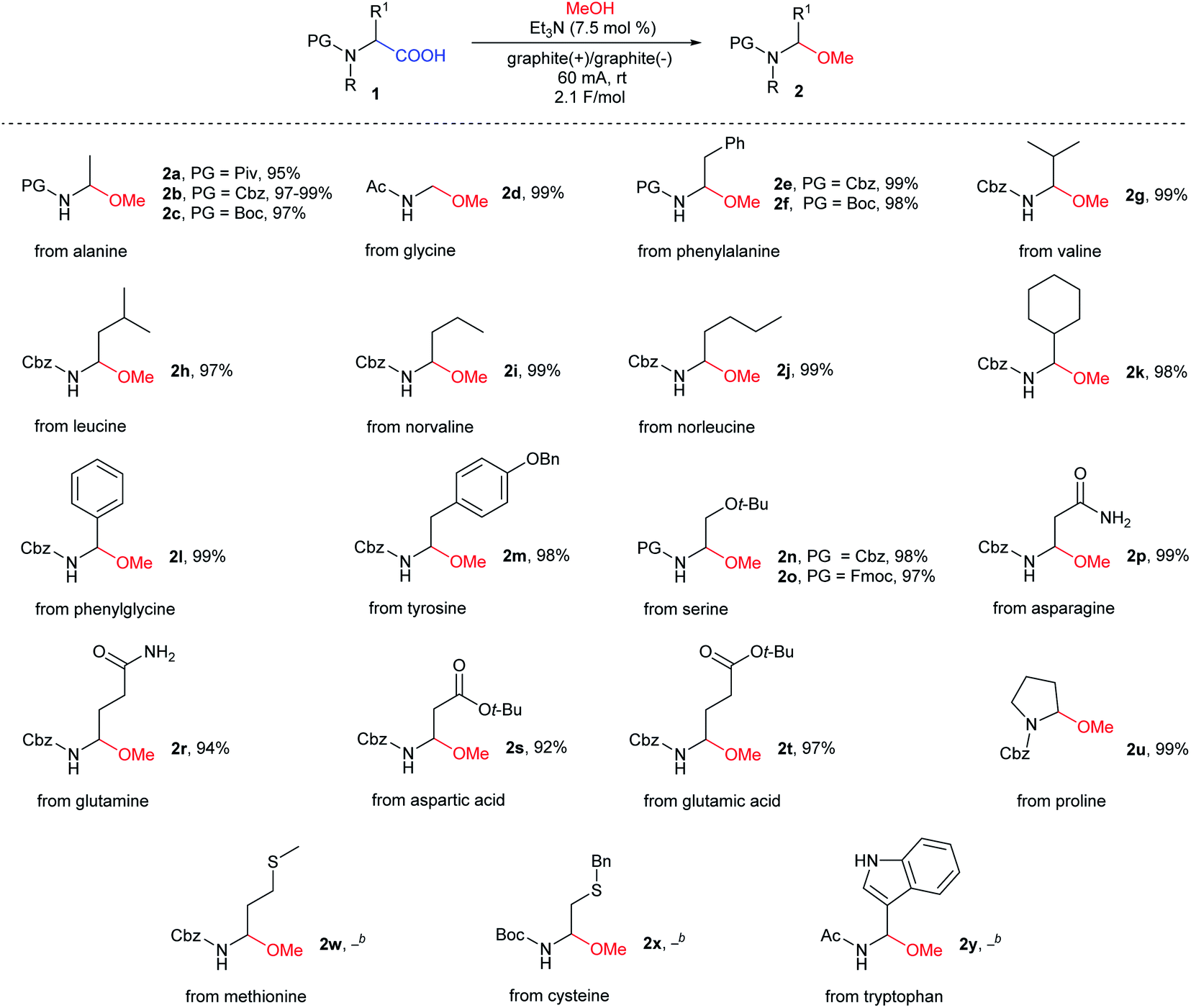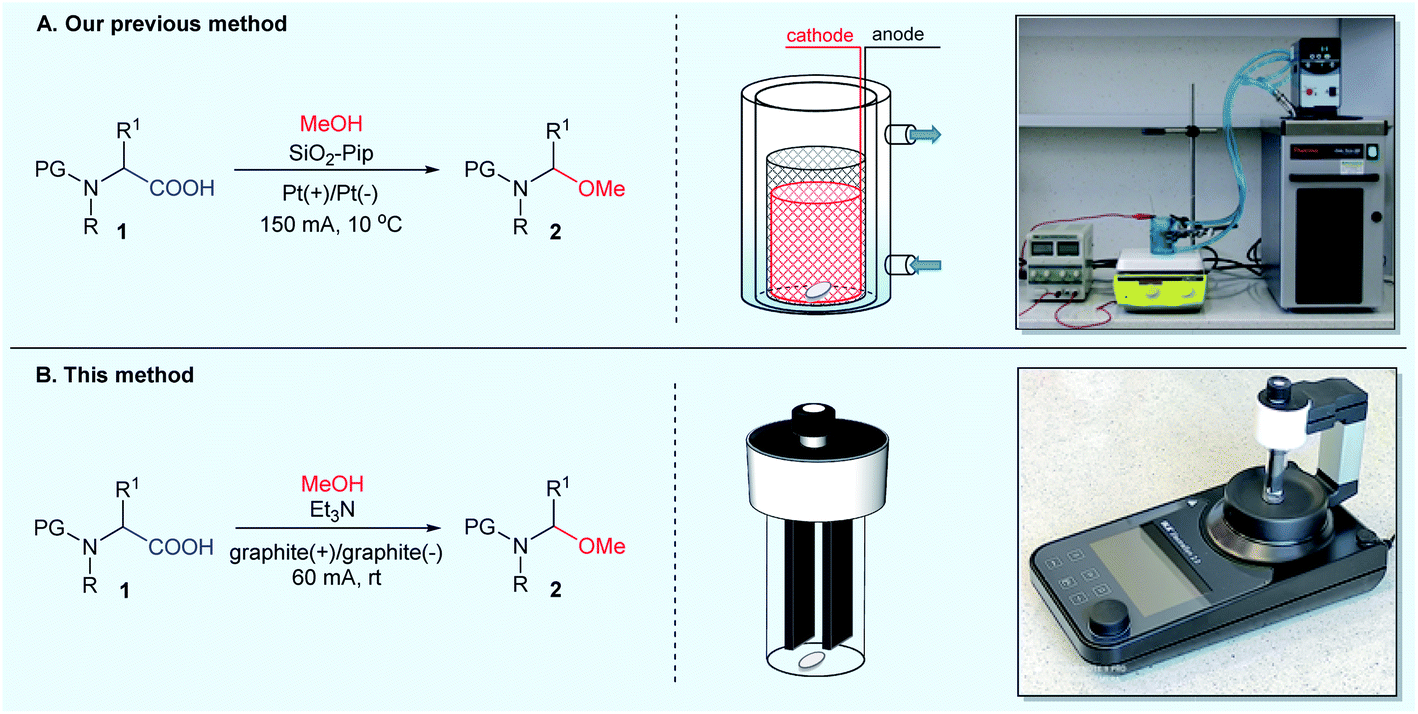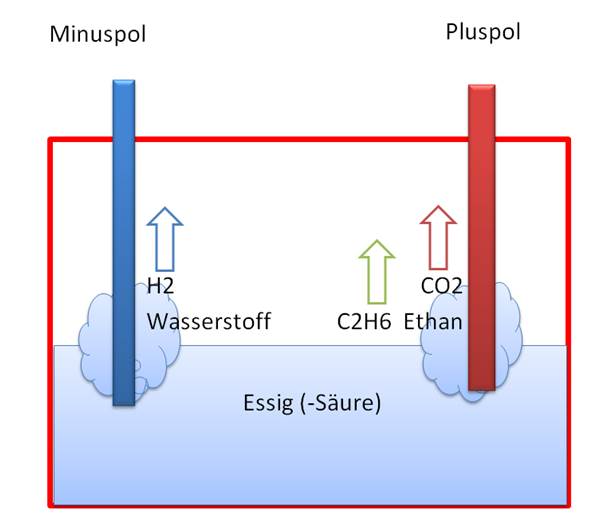
Non-Kolbe electrolysis of N -protected-α-amino acids: a standardized method for the synthesis of N -protected (1-methoxyalkyl)amines - RSC Advances (RSC Publishing) DOI:10.1039/D1RA08124A

Versuche zur elektroorganischen Chemie (Kolbe- Elektrolyse) im Chemieunterricht Teil I. - PDF Free Download
EMOLLIENTS UND KOSMETISCHE ZUSAMMENSETZUNGEN AUF BASIS SPEZIELLER VERZWEIGTER KOHLENWASSERSTOFFE - Patent 1853219

Moderne Aspekte der Elektrochemie zur Synthese hochwertiger organischer Produkte - Möhle - 2018 - Angewandte Chemie - Wiley Online Library

Enhancing interfacial shear strength via surface grafting of carbon fibers using the Kolbe decarboxylation reaction - ScienceDirect

Non-Kolbe electrolysis of N -protected-α-amino acids: a standardized method for the synthesis of N -protected (1-methoxyalkyl)amines - RSC Advances (RSC Publishing) DOI:10.1039/D1RA08124A















![Elektrolyse · Prinzip, Wirkungsgrad, Beispiele · [mit Video] Elektrolyse · Prinzip, Wirkungsgrad, Beispiele · [mit Video]](https://d1g9li960vagp7.cloudfront.net/wp-content/uploads/2020/01/WP_Elektrolyse-Anwendungsgebiete_1-3-1024x576.jpg)